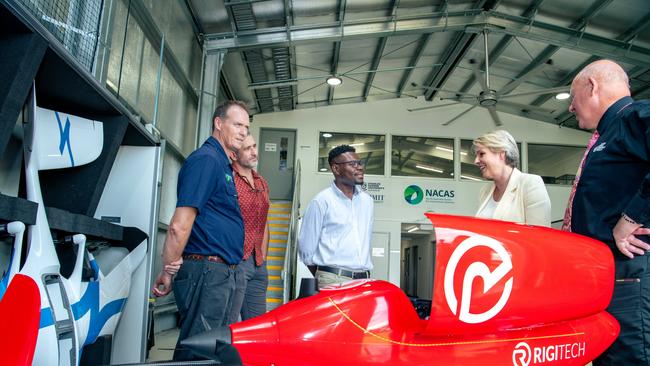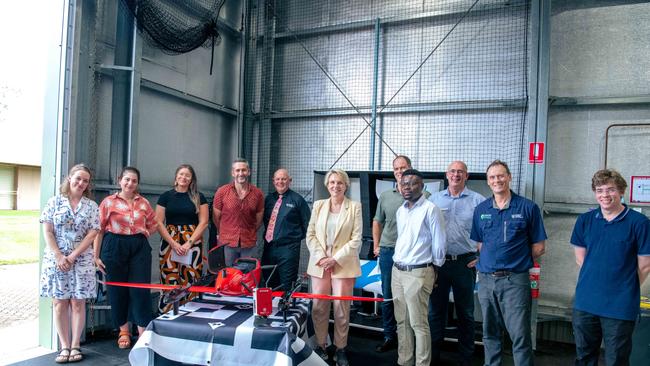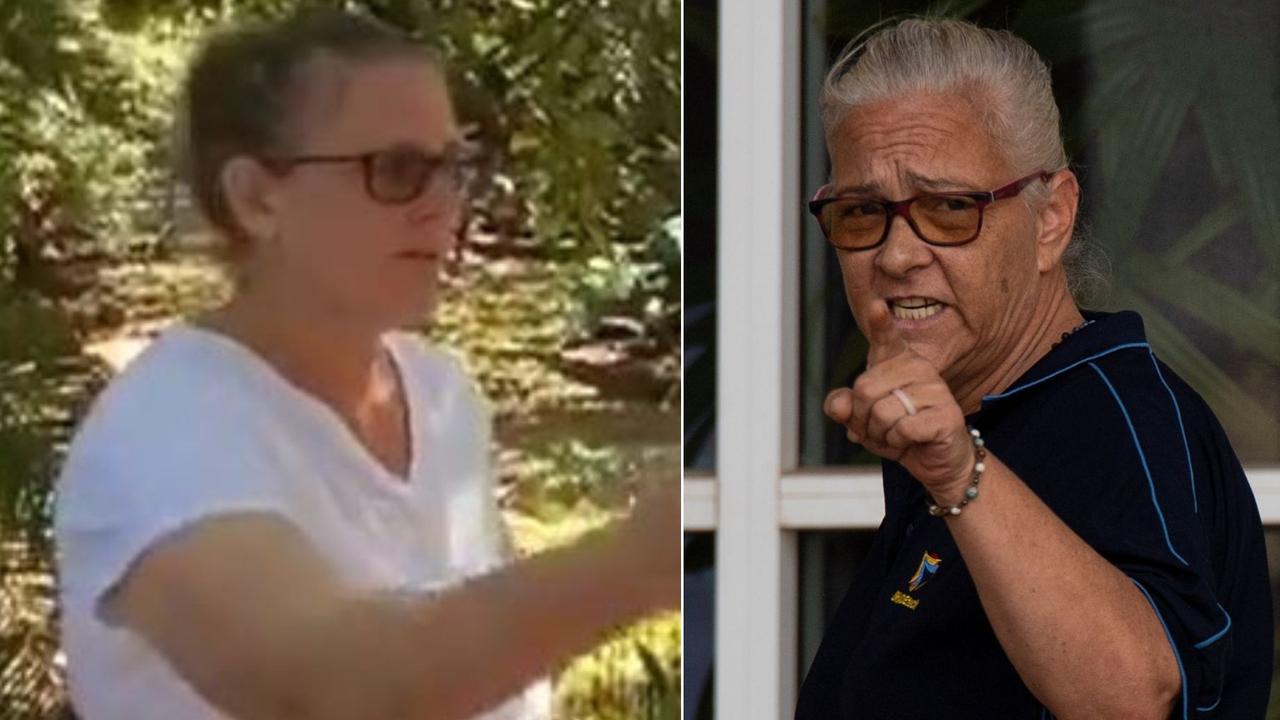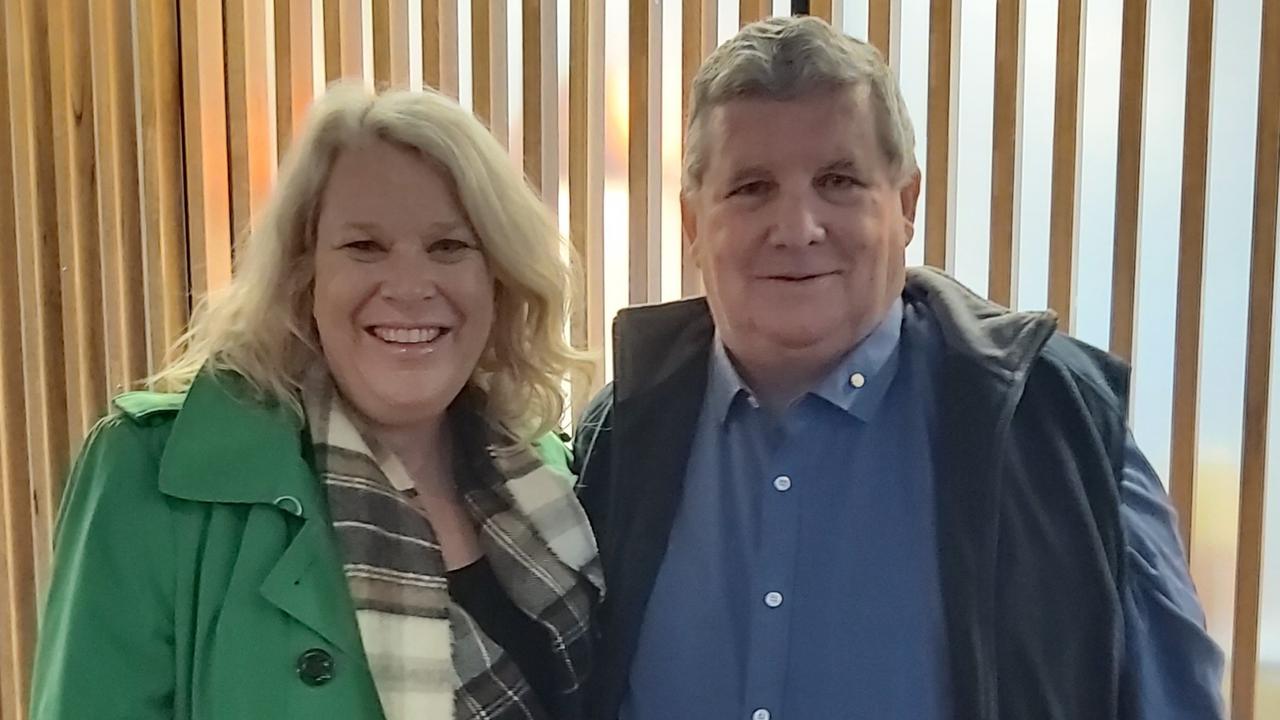Darwin: CDU drone project given critical grant to support Northern Australian environment
A Top End drone project has been given the nod of approval to support the Northern Australian environment. Read what Environment and Water Minister Tanya Plibersek said.

News
Don't miss out on the headlines from News. Followed categories will be added to My News.
A Top End drone project has been given a lifeline in its mission to support the Northern Australian environment.
On Wednesday, Environment and Water Minister Tanya Plibersek visited Charles Darwin University to formally announce the institution would be granted $440,000 from the Australian government as part of the Innovative Biodiversity Monitoring Grants program.
The CDU project in question involves the use of hi-tech drones, and satellite-based optical, radar, and lidar imagery to measure the structure of vegetation in large desert and savanna landscapes in the Kimberley region of Western Australia.
CDU Lecturer in Remote Sensing Dr Richard Crabbe said the project would be more efficient than the current method of conducting surveys on-ground.
“On-ground surveys, whilst effective, typically only cover an area of less than 0.25ha at a time, in contrast, drone-based imaging could cover areas of about 1sq km at a time and satellite-based imaging could characterise vegetation structure across thousands of square kilometres,” Dr Crabbe said.
“The satellite-based radar technology also provides high resolution and potentially uninterrupted data that will help us to improve biodiversity metrics.”
Ms Plibersek confirmed CDU was one of 12 projects that received funds out of more than 100 applicants across the nation.
“We’re lucky to have some of the best minds who are passionate about finding new ways to better protect our precious environment,” she said.
“It’s exciting to see new ideas and projects like using drones to better understand, monitor and record vital information about our environment.”

Ms Plibersek said the project would join the national effort in combating environmental threats.
“This information is crucial in our fight to protect nature from threats like climate change, natural disasters and predators,” she said.
“By investing in biodiversity monitoring projects like this, we will also be able to better protect threatened plants and animals.
CDU vice-chancellor Scott Bowman said he was grateful the Top End had received recognition.
“It means a lot because there was a lot of competition for these grants across the country – I think the minister said only about a 10 per cent success rate, so it’s a good acknowledgment that we’ve got the right people.”
Mr Bowman said CDU had “always punched above its weight”.
“We’re one of the smallest universities in Australia yet we’re way up in the top half of universities for research output and that means researchers from around the world see that we’re a great research university and come here.”




